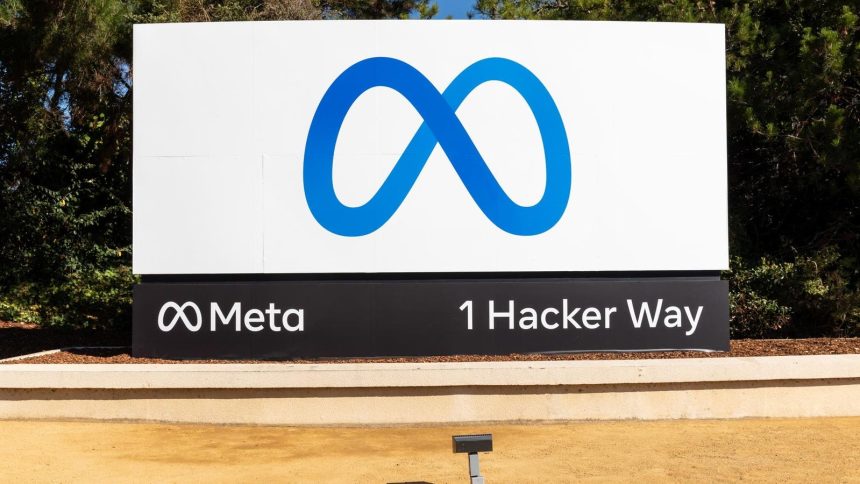This is the published version of Forbes’ CIO newsletter, which offers the latest news for chief innovation officers and other technology-focused leaders. Click here to get it delivered to your inbox every Thursday.
Tuesday was a big day not just for publicly traded tech companies, but also to show the importance of AI technology. Two of the biggest tech companies—Microsoft and Google parent Alphabet—reported their quarterly earnings after markets closed. Both beat investors’ overall forecasts: Alphabet’s revenues were up 11% year over year, and Microsoft’s by 13% along the same lines of comparison.
But investors reacted differently to each report, with Alphabet’s share price immediately sliding nearly 5%, while Microsoft’s surged about 5%. What was the differentiator? Each company’s performance in AI.
Microsoft was already ahead in AI, having backed OpenAI, which changed the game with its launch of ChatGPT last year. But the company has invested heavily in other AI applications, and its AI-heavy intelligent cloud unit saw $24.3 billion in profits—19% growth. Microsoft’s new AI-powered Copilot program, an assistant to help work in a variety of applications, will roll out to large companies next month, and CEO Satya Nadella said in the call with analysts more than 18,000 organizations are now using Microsoft’s Azure OpenAI Service.
“We’re using this AI inflection point to redefine our role in business applications,” Nadella said on the call.
Alphabet’s earnings saw growth in advertising revenue—up 9%—but its AI-exposed cloud segment missed earnings targets. Some analysts saw reasons to be cautious, warning the company may not be able to get a larger market share in cloud features or improve its margins.
Earnings reports are essentially snapshots of three months in time for a company. For a new and novel technology such as AI, there are ample opportunities for both Microsoft and Alphabet to prove themselves. But there are also many opportunities for a new player to shift the paradigm—something both Microsoft and Alphabet both did when they entered the technology market.
IN THE HEADLINES
Facebook and Instagram parent company Meta was sued by 33 states in federal court. The lawsuit accuses the social networking giant of misleading the public about addictive features that target young people, saying it has “profoundly altered the psychological and social realities for a generation of young Americans.”
The lawsuit showcases another precarious portion of Meta’s business. The social networking company has recently come under fire for other issues, including being assessed hefty fines for violating privacy laws in the European Union and Norway.
On Wednesday, Meta reported record quarterly profits of $34.1 billion, up 23% from a year ago. It’s a huge comeback for the company, which saw losses last year as founder and CEO Mark Zuckerberg pivoted toward the metaverse. However, the company is not out of the woods. Its stock prices dropped in after hours trading after CFO Susan Li said on the earnings call there has been “volatility” in advertising at the beginning of the most recent quarter, with “softer ad spend” correlating with the beginning of the war between Hamas and Israel.
CYBERSECURITY
Many businesses aren’t adequately aware of their cybersecurity risks, researchers have found. A report from data management firm Veritas Technologies found 48% of executives and IT professionals said their organizations were not currently at risk. But then when presented with a list of individual risk factors, 97% found something that could threaten their business. And many of these business leaders had been victims before. Nearly nine in 10 said they had experienced financial or reputational damage from cybersecurity attacks in the last two years, and 65% had been victims of ransomware attacks.
One industry that is aware of its cybersecurity threat is automobile manufacturing. A study from Kaspersky found that 64% of industry executives felt their supply chain is currently vulnerable to a cyber attack. But awareness does not necessarily lead to preparedness. The survey also showed that 42% said they didn’t have a plan to meet new European cybersecurity requirements going into effect next year that require vehicle computer systems to be secure. And nearly three in 10 respondents don’t see the value of their current threat intelligence investments.
ARTIFICIAL INTELLIGENCE
While AI’s potential is causing peaks and valleys in tech stocks, larger debates about the technology are roiling the tech and business community as a whole. While AI can be used in many different applications, many are questioning the ways in which it should—and should not—be used. A study by Wharton professor Stefano Puntoni and consultancy GBK Collective found 81% of enterprise companies have internal teams discussing AI that have at least 10 members.
AI technology has already demonstrated the ability to tell a compelling story, even though it may not always hew closely to the facts. Leaders in the space are recognizing this could be a huge issue in politics, especially in the run-up to what is sure to be a contentious 2024 election. Inflection CEO Mustafa Suleyman is leading the charge to get companies in the space to come together and restrict using AI for political-related content or conversations, writes Forbes’ Rashi Shrivastava.
The ability of AI as a reliable legal researcher is also being called into question. Rapper Pras Michél of the Fugees is challenging his fraud conviction, saying his former attorney’s use of AI to craft his closing arguments created one that Michél’s new attorney said “was deficient, unhelpful and a missed opportunity that prejudiced the defense.”
DEEP DIVE
Former Google CEO Launched A $100 Million Company With His Girlfriend. It’s Not Going Well
Former Google CEO Eric Schmidt has spent much of his time since leaving the tech giant as an investor and advisor for many tech companies and policies. But he’s also put his clout—and at least $100 million—into a startup accelerator called Steel Perlot, the CEO of which is 29-year-old Michelle Ritter, who Schmidt has been dating.
Schmidt serves as executive chairman for Steel Perlot, which has the purpose of launching and investing in new ventures. But the business of Steel Perlot is unclear. Forbes’ David Jeans and Sarah Emerson were unable to find evidence that anyone other than Schmidt had significantly funded the accelerator, though Ritter said it had multiple backers. A former employee told Forbes Steel Perlot was a “vanity project,” and multiple employees said they had business meetings with Ritter at several of Schmidt’s estates.
To date, Steel Perlot has invested at least $20 million into more than a dozen startups, as well as launched two companies. Ritter told Forbes she is planning several announcements regarding Steel Perlot in the next six months.
FACTS + COMMENTS
Apple TV raised its premium monthly subscription rate this week as competition for streaming viewers—and subscription costs in general—increases.
$9.99: The new monthly cost of a premium Apple TV+ plan
43%: The relative size of this price hike. Previously, the monthly subscription was $6.99
6: The number of video streaming services that already hiked their prices this year: Netflix, Disney+, Hulu, Max, Paramount+ and Peacock
QUIZ
X, the social network formerly known as Twitter, quietly began rolling out a new feature this week. The feature was not formally announced, though CEO Linda Yaccarino confirmed in August that it was coming. What is the new feature?
- Ability to send and receive money
- An integrated search engine
- A streaming news channel run by the social network
- Ability to make audio and video calls on the service
Check if you got it right here.
Read the full article here










